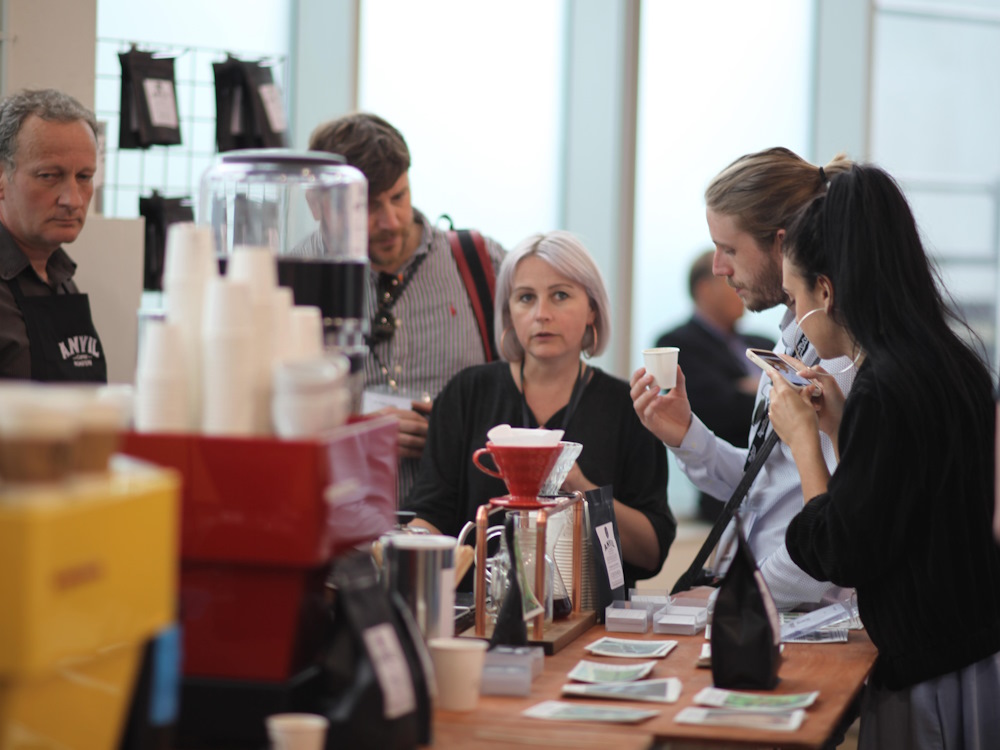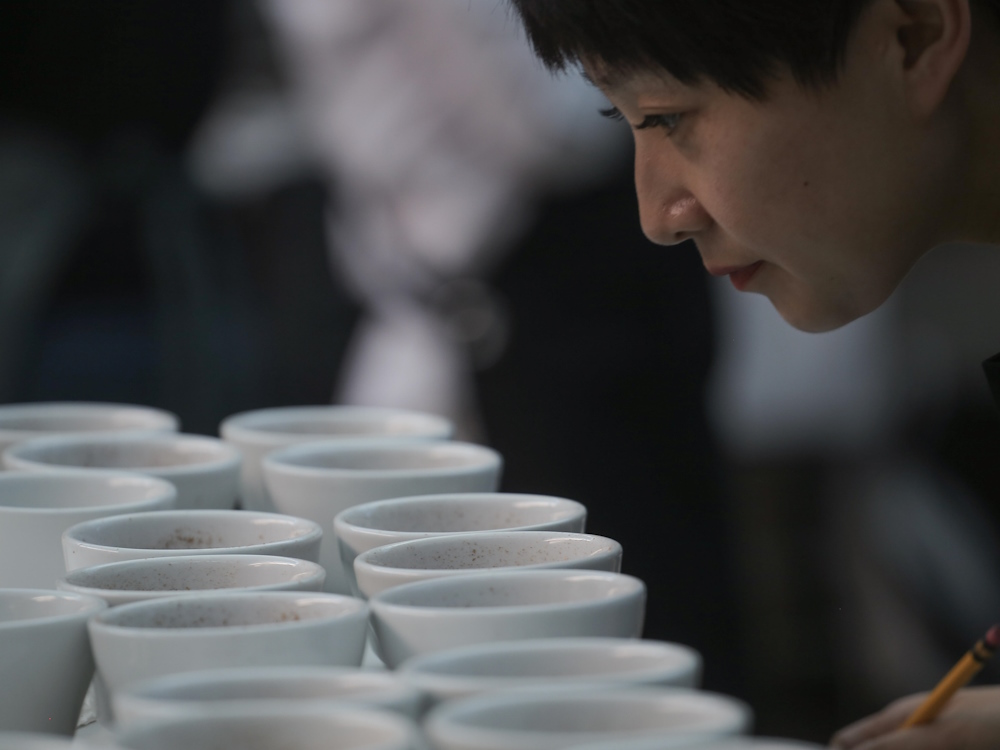Coffee associations serve an important purpose. They promote the production and consumption of high-quality coffee in a growing number of countries around the world, which benefits the wider industry.
As the coffee sector has grown, associations have also changed to keep up with an evolving market. With specialty coffee arguably becoming more “mainstream” over the last decade as it attracts a bigger audience, the mission and values of some industry associations have started to mirror this broader market shift.
For some coffee professionals, a seemingly bigger focus on revenue generation makes these changes feel “corporate,” especially as member fees remain high – making them increasingly inaccessible, particularly for people in producing countries.
To explore how coffee associations have changed and whether their shifts in focus are necessarily harmful to the values of specialty coffee, I spoke to Spencer Turer, Vice President of Coffee Enterprises, for his insight.
You may also like our article on whether guilds and associations benefit specialty coffee.
Coffee associations and their role in the industry
Trade associations are organisations funded by businesses that operate in a particular industry. Through collaborations, associations offer a number of services, including defining industry standards, organising events, and offering educational courses and materials.
In the context of the coffee sector, many associations have been established in producing and consuming countries. Some include:
- International Coffee Organisation, established after the first International Coffee Agreement in 1962, which works with global governments and the private sector
- National Coffee Association (NCA) in the US, established in 1911
- British Coffee Association
- European Coffee Federation, which includes 16 national associations and 42 company members
- National Federation of Coffee Growers of Colombia, founded in 1927, promotes the production and export of Colombian coffee
- African Fine Coffees Association, which includes 11 member countries
- International Women’s Coffee Alliance unites a global network of chapters to support women working in the international coffee community
Arguably the most well-known trade organisation is the Specialty Coffee Association (SCA). Originally founded as the Specialty Coffee Association of America (SCAA) in 1982, the association aims to “foster a global coffee community and support activity to make specialty coffee a thriving, equitable, and sustainable activity for the entire value chain”.
In 2017, the SCAA merged with the Specialty Coffee Association of Europe (founded in 1998) to create an international organisation that represents industry professionals worldwide.
While there is some crossover between the different associations’ values and missions, each one serves a particular market or works to achieve a certain purpose. According to a recent Perfect Daily Grind poll, 51% of respondents believe associations help facilitate networking opportunities, while 26% stated they strengthen advocacy efforts. Additionally, 18% agreed that associations support and guide coffee research.

How have associations changed in recent years?
Spencer Turer is the Vice President at Coffee Enterprises, a US coffee and tea consultancy and testing company. He started working in specialty coffee in 1994, attended the SCAA annual conference for the first time in 1996, and started volunteering for the SCA in 2000.
Throughout his decades of experience in the industry, he says he has seen firsthand how coffee associations have changed, including adopting a more corporate identity and prioritising profitability.
Some, like the NCA, have long been more corporate. Since the 1950s, the association has compiled extensive National Coffee Drinking Trends market research reports, which track US coffee consumer behaviour. The reports are available for purchase, and NCA members receive a discount.
Other associations that started out as grassroots movements, meanwhile, have since shifted more of their focus onto revenue generation by offering educational courses and organising events, including the SCA.
Spencer says that in order to support the growth of a burgeoning global industry, taking on a business-minded approach is inevitable.
“It’s a natural progression for any business to grow in size and scope. In recent years, specifically after unification in 2017, the SCA developed a corporate structure and hired more staff, relying on fewer volunteers,” he tells me. “Because of data privacy issues, there is no longer a membership directory, which can feel isolating and restricts our ability to connect, especially with other Guild members.”
Following the merger of the US and European chapters in the late 2010s, the SCA’s focus on research and events intensified. Its Specialty Coffee Expo and various World of Coffee trade shows are some of the biggest events held every year, drawing in thousands of attendees and exhibitors.
Without the support of national organisers and equipment sponsors, hosting these events – including the revered World Coffee Championships – in different countries around the world would be impossible. Given their broad reach and significance in the industry, they clearly add value to specialty coffee.

Does corporatisation always have negative connotations?
As specialty coffee consumption has increased around the world, it has become more commercial and appeals to a wider range of customers. While some celebrate this growth, exemplified by brands like Blue Bottle Coffee and Stumptown Coffee, others remain sceptical, claiming it stifles genuine innovation and conflicts with specialty coffee’s intrinsic values.
“The industry generally places more value on small, boutique companies that embrace creativity and innovation over large companies that function similarly, with the only difference being size and reach,” Spencer says. “As global organisations attempting to support the entirety of the specialty coffee industry from farm to consumer, one may argue that the mission and scope of associations are too broad to be impactful and supportive of all professional and business categories.
“The challenge is to continue providing value to members as their careers progress, and many enter leadership positions.”
To support the global specialty coffee industry, the SCA is structured into national chapters that focus on events, education, and networking in different countries and regions. However, despite the organisation’s increasing international reach, many national SCA chapters still face various challenges, which are often the result of geographical location and political, economic, and socio-cultural issues. In less economically developed countries, access to resources and networking opportunities is often more limited, which can make it difficult for some association members to fully engage with their communities.
Room for improvement
With the rapid growth of the specialty coffee industry, trade associations have also inevitably changed. To promote production and consumption on a larger scale, organisations will naturally adopt a more formal approach. While this may not resonate with all members and industry professionals, associations will continue to add value to specialty coffee.
“SCA education courses are useful for enthusiasts seeking a career in specialty coffee and for professionals looking to improve their skills,” Spencer says. “The competitions remain an exciting draw for baristas, roasters, and others to showcase their skills and quickly develop a reputation for their achievements.
“The programmes are all well-intentioned, but they don’t always align with the ultimate goal of improving the consumer experience through flavour and aroma,” Spencer continues. “There are many opportunities for the SCA to work more closely with consumers other than its current B2B approach.”
One way we could witness this change is through the rollout of the Coffee Value Assessment, which was officially adopted as the new cupping standards in early November 2024, replacing the SCA cupping form. Taking into account different market preferences and the cultural and environmental aspects of coffee, there is scope for the industry to benefit from these new protocols.
“They may, however, divide people into two groups: The experienced cuppers and graders in supply chain and quality control who continue to embrace and utilise the old cupping form, and the specialty coffee professionals who are pivoting to the new descriptive and affective value forms,” Spencer says. “These are serious changes that represent risks to the association as a result of confusion and separation within the industry.”

Coffee associations provide support and guidance to industry professionals and consumers in a number of ways. In an ever-evolving market, it’s imperative that they keep up with emerging trends and changing behaviour.
The challenge, however, lies in aligning with specialty coffee’s core values, including quality and authenticity. Drifting too far away from these key principles may alienate some members and coffee professionals, putting associations at odds with the people they intend to serve.
Enjoyed this? Then read our article on whether the World Barista Championship needs to change.
Perfect Daily Grind
Want to read more articles like this? Sign up for our newsletter!
The post Have coffee associations become too corporate? appeared first on Perfect Daily Grind.

